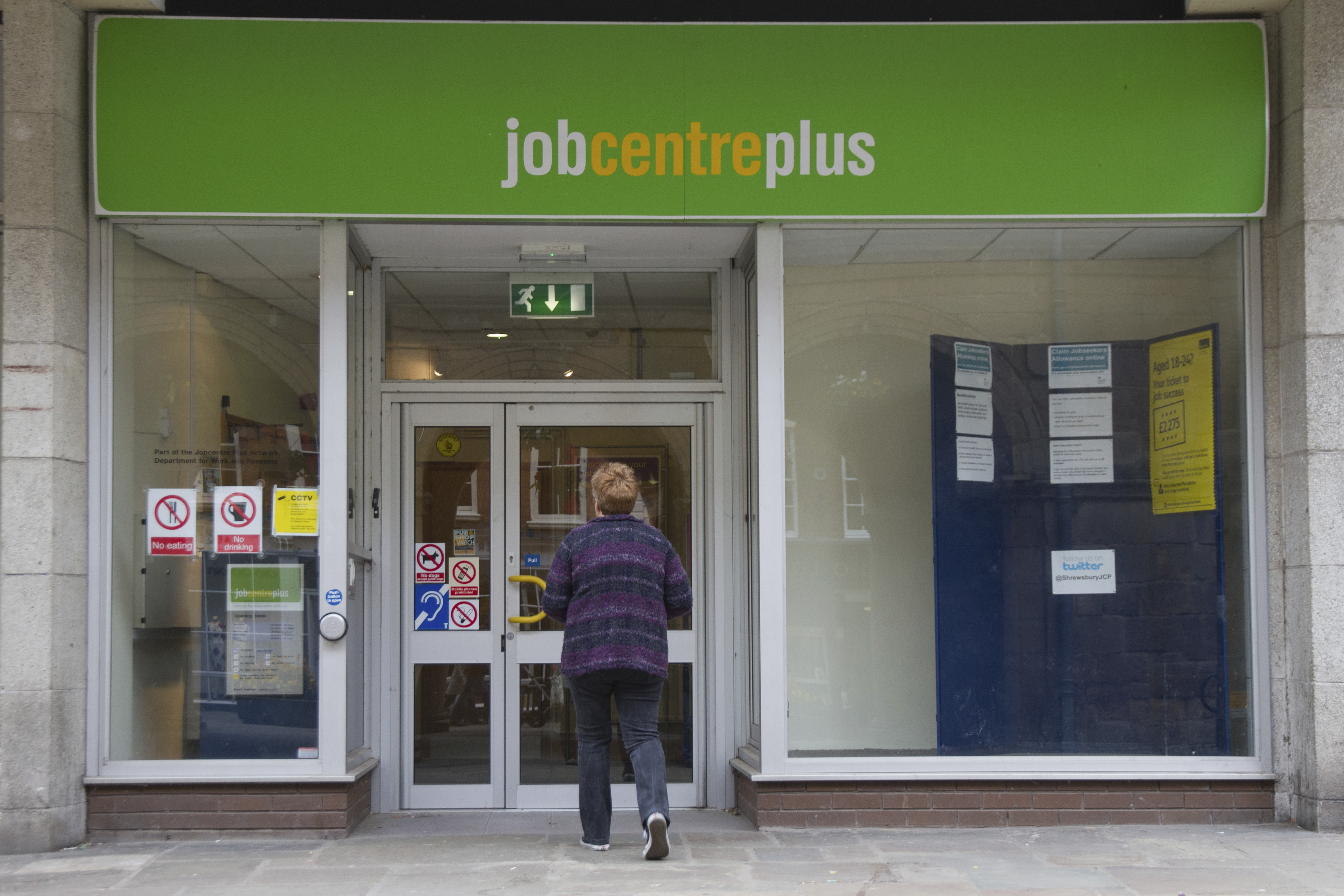We are not robots
The final straw came when they tried to turn a Rocket into a robot.
Rebecca Rocket had put up with the rock bottom wages, authoritarian management and the minimal employment rights.
But then Penguin Random House decided there was a more â€efficient’ way of packing books at its warehouse and sending them to customers.
They would equip the warehouse workers with voice-activated headsets, electronic wristbands and scanners for their fingers.
Apart from making Rebecca feel as if she was simply a piece of human software; a kind of organic add-on to a computer system, it meant that she wasn’t going to be able to talk to her colleagues.
“One of the few things that made the job bearable was the banter,” she says.
Clearly the electronic equipment could also monitor the workers’ â€pick rate’. “That meant the elderly and the slower workers wouldn’t be given shifts,” she says.
That was when Rebecca told the company – in the politest possible terms – where to put their job.
Rebecca and her colleagues had been sent to the warehouse by an employment agency. They were meant to get at least one shift a week, but had to be available for five. They were given a day’s notice when they were needed, which could be cancelled on the morning at the whim of management. They could also be sent away if there was no more work to do. Inevitably they were not paid to the end of the shift.
On one occasion Rebecca was told to go home when she turned up at the warehouse. The firm had forgotten to send a message canceling her shift. Despite making arrangements so she could spend the whole eight hours at work, she was given just £6.25 in compensation, an hour’s pay.
Scrooge
To add a touch of the Scrooge to the whole business the agency workers were meant to be at the warehouse for eight hours for each stint, but were only paid for seven and a half. There was a compulsory meal break for which they received nothing.
And to add insult to injury in 2015 the company announced at a meeting at the warehouse that it had received 3.3bn euros in revenue during the course of the year. Inevitably its agency workers were unimpressed by the company’s financial success.
At one stage Rebecca started a blog to vent her frustrations with Penguin.
Through the blog she began a campaign to win union recognition. Her slogan – and message to disgruntled colleagues – was â€shut up and join the union’.
They finally won recognition in spring 2016. Ironically they couldn’t organise their first meeting because no-one knew from one day to the next when they would be in.
Looking back on her experiences at the warehouse, she says, “It was so unjust, but people were too afraid to speak out. The job was just a death sentence. I quit to save myself.”
Unfortunately her experiences are not unique. Analysis by the TUC shows that up to 3.2m UK workers are in â€insecure’ employment which involves zero-hours contracts, temporary or agency work, and low pay. Employment rights are either minimal or ignored.
A Unite submission to the Taylor inquiry, a government survey of modern working practices, quoted TUC research estimating that 1.7m workers were now in low-paid self-employment, the fastest growing sector.
“What is clear is that becoming â€self-employed’ might be a choice for some, but it is also a way for employers to avoid their legal obligations in terms of both pay and conditions,” says the submission.
Unite assistant general secretary Steve Turner believes too many companies are â€addicted’ to the use of insecure working practices.
Commenting on official figures revealing that 1.4m contracts failed to guarantee a minimum number of hours, he said zero hours contracts accounted for five per cent of all contracts of employment.
“Insecure work is still a feature of day-to-day living for far too many people who are struggling to eke out a living, not knowing from one week to the next whether they can put food on the table,” said Steve.
“Too many companies like Sports Direct are addicted to the use of exploitative zero hours contracts and insecure agency work.”
That injustice would not be addressed unless people join a union and organise for better working conditions, he said. “The government must not let these firms off the hook either and must act to outlaw zero hours contracts and other mutations of precarious work.”
So how did this all come about? How did Britain’s workforce change from being employed in relatively secure jobs, into one where an increasing proportion are forced to take insecure part-time jobs on low wages with minimal employment rights and no expectation of serious training and career advancement?
Clearly there are the much-rehearsed historic reasons. The visceral anti-trade unionism of Mrs Thatcher and her victory in the miners’ strike and the Wapping dispute of the 1980s were landmark defeats for the union movement and consequently for workers’ rights.
A whole generation of young people has grown up in an atmosphere where the state and its cheerleaders in the right-wing press foster negative attitudes to unions. This opposition to unions gradually mutated into utter indifference and in many cases ignorance of what the movement was all about. As the graph charting union membership declined, the number of people forced to take insecure work went in the opposite direction.
But unions have to ask themselves whether righteous – and indeed rightful – indignation, might obscure some home truths.
Unite Community activist Colin Hampton believes there was a degree of complacency involved. He points to the fact that unions acquiesced in additional workers being taken on for short term work on lower terms and conditions than the main workforce.
That trend increased during the 1970s and early 80s when pockets of mass unemployment were developing all over the UK.
“People on the periphery of employment, were left abandoned, particularly in the private sector,” believes Colin who works for the Derbyshire Unemployed Workers’ Centre.
“Unions failed to stamp on the practice. People were told that while â€new starters’ were being brought in on inferior terms and conditions, it won’t affect you.”
The watchword for management became â€flexibility’.
“That was great for students and single parents, but that flexibility was for employers’ benefit. People were taken on when production required it and laid off when it didn’t.
“The problem was compounded by unions’ reluctance to try and organise in small scale businesses,” says Colin.
“It is not an easy subject to discuss. As unions lost members, there were fewer union officials which inevitably meant it was increasingly difficult to give a service to people.”
Clearly Colin has to deal with the present, rather than mulling over the past. But he points to one irony – that the huge Sports Direct warehouse on the Derbyshire-Nottinghamshire border was built on the site of Shirebrook Colliery where in the nineteenth century bosses used the notorious â€butty’ system.
The butty men worked like employment agencies who trawled the pubs recruiting men to mine the coal. That absolved the coal owners of any responsibility to the miners and minimised the possibility of union organisation.
So it seems that far from being a state of the art tool of modern capitalism, employment agencies have long been a weapon for those seeking to keep working people in their place.
Head of Unite Community Liane Groves says one of the main reasons for the existence of her part of the union is to bring â€peripheral’ workers into the union family – including those who are partially or wholly unemployed and agency workers.
“Unite Community brings the message of trade unionism and employment rights to precarious workers.
“Community played an instrumental role in the Sports Direct campaign that brought the issue of zero hours contracts onto the national agenda. As a result of this campaign tens of thousands of low paid workers now enjoy guaranteed hours and a pay rise.”
Labour has pledged to end zero hours contracts – which is good news. In the interim the only way to end the abject misery of â€bad job Britain’ is for workers to join a union and organise for better working conditions.
Unite and Unite Community are making this goal their priority.
This feature first appeared in Unite’s members magazine uniteWORKS. You can read the latest edition on the Unite website here. Or as a Unite member you can receive a print or digital copy by changing your membership records through My Unite or by contacting your local regional office regional membership admin team.
 Like
Like Follow
Follow


